Related Research Articles

Bangladesh, officially the People's Republic of Bangladesh, is a country in South Asia. It is the eighth-most populous country in the world, with a population exceeding 165 million people in an area of 148,460 square kilometres (57,320 sq mi). Bangladesh is among the most densely populated countries in the world, and shares land borders with India to the west, north, and east, and Myanmar to the southeast; to the south it has a coastline along the Bay of Bengal. It is narrowly separated from Bhutan and Nepal by the Siliguri Corridor; and from China by the Indian state of Sikkim in the north. Dhaka, the capital and largest city, is the nation's political, financial and cultural center. Chittagong, the second-largest city, is the busiest port on the Bay of Bengal. The official language is Bengali, one of the easternmost branches of the Indo-European language family.

Dhaka, formerly known as Dacca, is the capital and largest city of Bangladesh, as well as the world's largest Bengali-speaking city. It is the eighth largest and sixth most densely populated city in the world with a population of 8.9 million residents as of 2011, and a population of over 21.7 million residents in the Greater Dhaka Area. According to a Demographia survey, Dhaka has the most densely populated built-up urban area in the world, and is popularly described as such in the news media. Dhaka is one of the major cities of South Asia and a major global Muslim-majority city. Dhaka ranks 39th in the world and 3rd in South Asia in terms of urban GDP. As part of the Bengal delta, the city is bounded by the Buriganga River, Turag River, Dhaleshwari River and Shitalakshya River.

The Economy of Bangladesh is characterised as a developing market economy. It is the 35th largest in the world in nominal terms or at current prices, and 25th largest by purchasing power parity; international dollars at current prices. It is classified among the Next Eleven emerging market middle income economies and a frontier market. In the first quarter of 2019, Bangladesh's was the world's seventh fastest-growing economy with a real GDP or GDP at constant prices annual growth rate of 8.3%. Dhaka and Chattogram are the principal financial centres of the country, being home to the Dhaka Stock Exchange and the Chattogram Stock Exchange. The financial sector of Bangladesh is the second largest in the Indian subcontinent. Bangladesh is one of the fastest growing economies in the world and South Asia.

The South Asian Association for Regional Cooperation (SAARC) is the regional intergovernmental organization and geopolitical union of states in South Asia. Its member states are Afghanistan, Bangladesh, Bhutan, India, Maldives, Nepal, Pakistan, and Sri Lanka. SAARC comprises 3% of the world's land area, 21% of the world's population and 5.21% of the global economy, as of 2021.

Shahjalal University of Science and Technology (SUST) is a public research based university in Sylhet, Bangladesh. It is the 8th oldest university of the country and the first university to adopt American credit system. The university is known for its pioneering research and education in the physical sciences and engineering. In 2016, SUST ranked as the top research university in Bangladesh by Scopus-SCImago institution ranking. In 2017, the university had highest research expenditure among all universities in Bangladesh. Following the success of SUST, twelve more STEM universities have been established in the country by the Government of Bangladesh.
The Acid Survivors Foundation is a Bangladeshi non-governmental organisation dedicated to raising awareness and preventing acid attacks and providing survivors with medical and legal aid.

ATN Bangla, 'ATN' being the acronym of the unused Asian Television Network, is a Bangladeshi Bengali-language satellite and cable television channel owned by Multimedia Production Company. It is based in the Kawran Bazar neighborhood of Dhaka. ATN Bangla is the first privately owned television channel and the first to broadcast on satellite in Bangladesh. The channel began broadcasting on 15 July 1997. ATN Bangla is broadcast in over 130 countries worldwide.

Sir Fazle Hasan Abed was the founder of BRAC, one of the world's largest non-governmental organizations.
The United Nations Environment Programme (UNEP) established Champions of the Earth in 2005 as an annual awards programme to recognize outstanding environmental leaders from the public and private sectors, and from civil society.
Daffodil International University(DIU) is a private research university located in Daffodil Smart City, Ashulia, Dhaka, Bangladesh. It was established on 24 January 2002 under the Private University Act of 1992 which was replaced by Private University Act 2010. According to QS University Rankings: Asia 2021, DIU is a top-ranked private university among all the universities in Bangladesh. DIU placed 1st among universities ranked from Bangladesh in Times Higher Education Impact Rankings 2021. DIU is the first university in Bangladesh to have signed the UN's Commitment to Sustainable Practices of Higher Education Institutions. According to the SCOPUS indexed research publications in 2019, Daffodil International University has been positioned 4th among all universities and 1st among all private universities in Bangladesh.
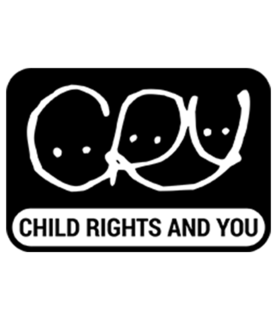
Child Rights and You (CRY) is an Indian non-governmental organization (NGO) that works towards ensuring children's rights.

Islamic University, Bangladesh, commonly referred to as Islamic University, Kushtia shortly IU, is one of the major public research and PhD granting universities in Bangladesh and the largest seat of higher education in the south-west part of the country. It is the only university in Bangladesh where a specialized stream of Theology and seven others academic divisions/faculties: Engineering and Technology, Humanities, Social Sciences, Sciences, Biological Sciences, Business Administration and Law are running parallel in a multicultural atmosphere. It is financed by the Government of Bangladesh through University Grants Commission, Bangladesh. On 22 November 1979, the foundation of the Islamic University was set up in Kushtia, and it is operated under the Islamic University Act of 1980. Islamic University began operations on 28 June 1986. It is the seventh oldest university in the country and the first university in Bangladesh established after the independence from Pakistan in 1971. It offers undergraduate, graduate, M Phil and PhD degrees.
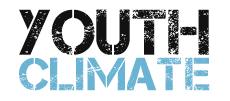
The Youth Climate Movement (YouNGO) or International Youth Climate Movement (IYCM) refers to an international network of youth organisations that collectively aims to inspire, empower and mobilise a generational movement of young people to take positive action on climate change.

Bangladeshis are the citizens of Bangladesh, a South Asian country centered on the transnational historical region of Bengal along the eponymous bay.
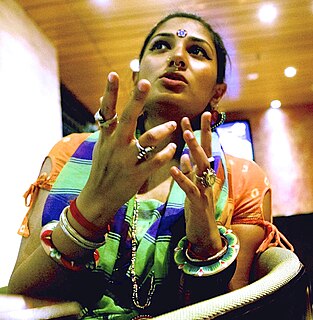
Wasfia Nazreen is a Bangladeshi mountaineer, activist, environmentalist, social worker and writer. She is the first Bangladeshi and first Bengali to complete the Seven Summits on 18 November 2015. National Geographic recognized Nazreen as one of their Adventurers of the Year 2014/2015. She was selected in honor of her activism and commitment to empowering women through her work in the field of adventure. She was again selected as one of their Explorers in 2016. becoming the only woman to hold the simultaneous titles of National Geographic Explorer and Adventurer. She is the first Bangladeshi to scale the world's second highest and most dangerous peak K2.
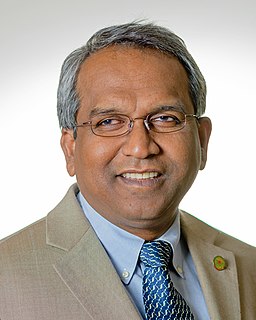
Dr. Ehsan Hoque is a medical doctor, social entrepreneur, and child rights activist. He is the founder and honorary executive director of Distressed Children & Infants International, an international non-profit organization based in the United States that works with underprivileged children and their families to stop child labor, extend educational opportunities, and provide access to healthcare.
Feminism in Bangladesh seeks equal rights of women in Bangladesh through social and political change. Article 28 of Bangladesh constitution states that "Women shall have equal rights with men in all spheres of the State and of public life".
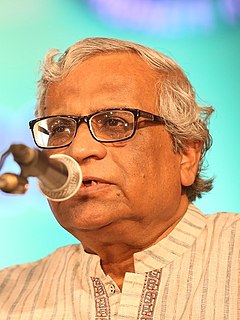
Anupam Sen is a Bangladeshi author, sociologist, and social activist. He is currently serving as the vice-chancellor of Premier University, Chittagong. He was awarded Ekushey Padak in 2014 by the Government of Bangladesh.

Kutupalong refugee camp is the world's largest refugee camp. It is in Ukhia, Cox's Bazar, Bangladesh, inhabited mostly by Rohingya refugees that fled from ethnic and religious persecution in neighboring Myanmar. It is one of two government-run refugee camps in Cox's Bazaar, the other being the Nayapara refugee camp.
The Narail Express Foundation is a Narail-based non-profit charity that provides education, healthcare, and other social services for the people who live in the Narail district of Bangladesh. It was co-founded by Bangladeshi Politician and Cricketer Mashrafe Mortaza, along with Tarikul Islam Anik in 2017.
References
- ↑ "IYCM promoting rights and opportunities for youth around the world". The Daily Star. Retrieved 20 August 2022.
- ↑ "IYCM aspires to deal social issues through volunteerism". The Asian Age. Retrieved 20 August 2022.
- ↑ "International Youth Change Maker has huge prospect". weeklyblitz. Retrieved 20 August 2022.
- 1 2 "পরিবর্তনের প্রত্যয়ে আইওয়াইসিএম" (in Bengali). The Daily Ittefaq. Retrieved 20 August 2022.
- ↑ "Sajib Khandakar, a dream hawker". The Asian Age. Retrieved 20 August 2022.
- ↑ "Labiba Sultana, catalyst for social reform". The Asian Age. Retrieved 20 August 2022.
- ↑ "জলবায়ু শরণার্থীদের পুনর্বাসন দাবি" (in Bengali). Prothom Alo. Retrieved 20 August 2022.
- ↑ "২০২৩-কে জলবায়ু বর্ষ চায় আইওয়াসিএম" (in Bengali). Dhaka Post. Retrieved 20 August 2022.
- ↑ "Bangladesh Digital Social Innovation Award 2021 announced". The Daily Sun. Retrieved 20 August 2022.